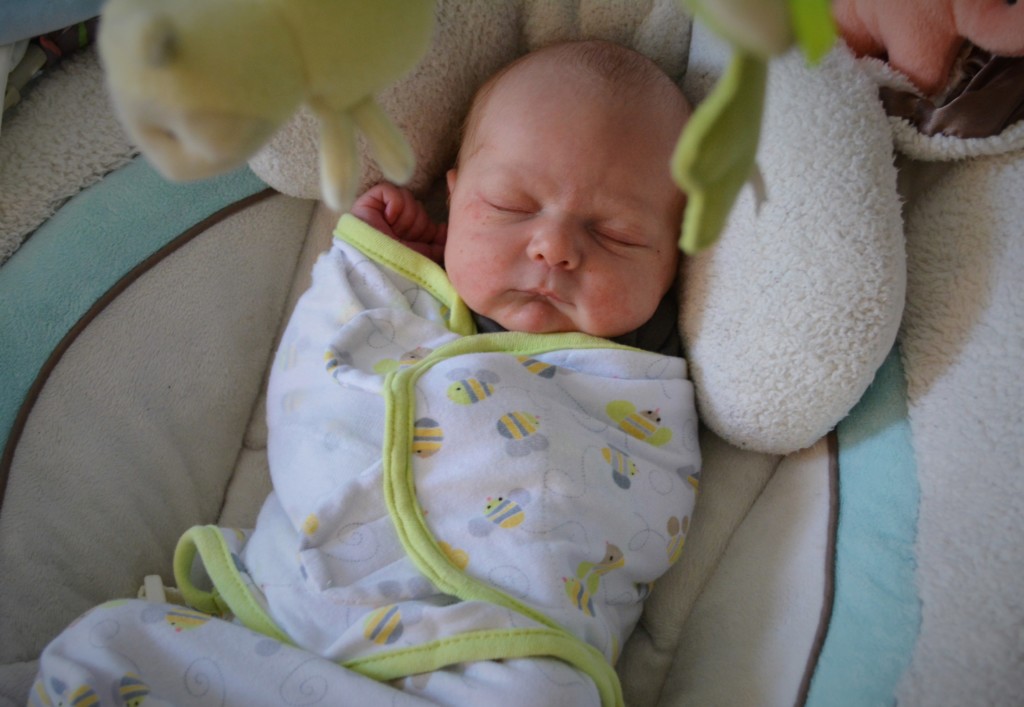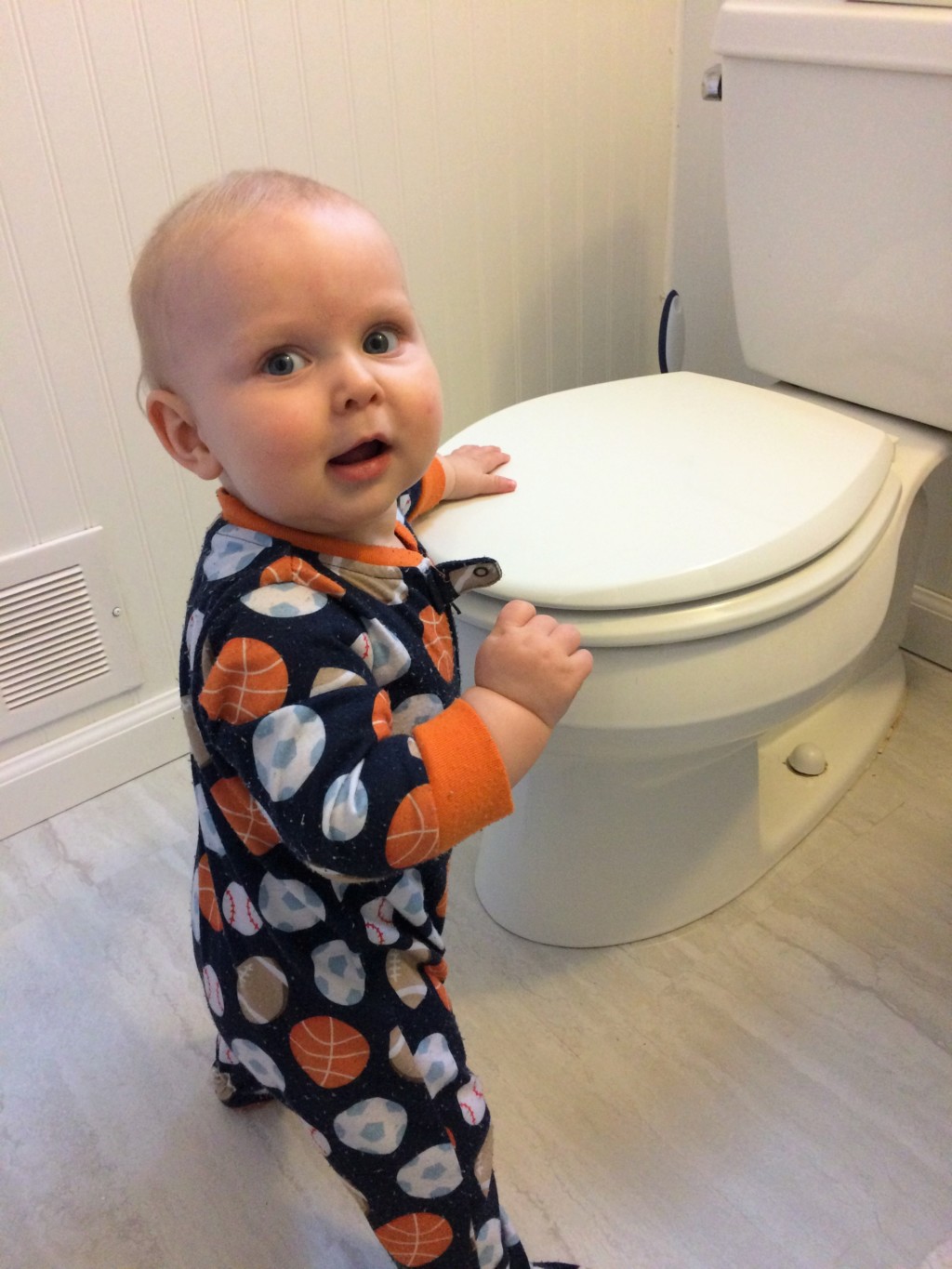When my son was a newborn, people told me, “Just wait; every day gets a little easier.” And I would reply, “Oh, good!” because I felt like they expected me to say that, and then I would shrug to myself. If things got easier, great! But we were doing alright even if they didn’t. Sure, I was tired and forgetting something every time I left the house (like the diaper bag – who needs it). But I had known this phase would come with challenges, and within a month or so I began to feel fairly competent.
The expectations of a new mom are justifiably simple at that point, and I felt like I was meeting them. Taking my baby out for a play date or making a home-cooked meal brought a sense of accomplishment. My son was happy and fed and usually clothed, and I cringe now to admit that I even found myself telling people I had expected it to be harder. (See: trick baby.) I know this isn’t true for everyone, and a lot of my friends probably resented me. I was one of the lucky few.

The mantra of our newborn phase was “you can’t spoil a baby.” Hence, there was unlimited cuddling and co-sleeping and nursing on demand. People understood if there were days you didn’t leave the house. It was easier for me to give, give, give than to question if and when a limit should be enforced. Maybe it’s because I descend from women who love babies. (After all, my grandmothers had 21 between the two of them.) Maybe it’s that we hit the newborn jackpot with an exceptionally easy baby; maybe it’s that his personality is shining through more and more, and as it turns out, he’s a pretty determined and energetic kid.
Looking back, it wasn’t that I found this chapter easy, by any means, but the challenges were straightforward and came at you head-on. Fed? Check. Clean diaper? Check. Nap? Check. Now, as we near his first birthday, that checklist is becoming increasingly lengthy and complex. The days of him falling asleep whenever he’s tired, wherever he is, are in the distant past, and those slivers of time between waking in the morning and then naps and then bedtime allow a barely-long-enough window to shower and start a load of laundry.

When did our circumstances change? It probably started with sleep, which – once you no longer get – you come to identify as the most essential of human needs. There was the four-month sleep regression that we never recovered from, compounded by the eight-month regression that doubled our nighttime wakings. And there was teething: up-all-night, shrieking-in-pain teething. Then my once-stationary baby was on the move and I was on the move too, chasing after him and panicking about the treacherous predicaments he might find himself in, in a house that was perpetually lagging behind on baby-proofing.

It’s normal. This is exactly where my son should be developmentally, and believe me, I am grateful that he’s on track. But I feel a greater societal expectation to have it all together, to have “bounced back”, to be a Julie Andrews kind of mom that exudes joy and optimism and creativity. There are no more prepared meals brought over by kind visitors or special accommodations from strangers in public. After all, we can’t expect the rest of the world to bear the responsibility of making our lives easier forever.
Parenting is a deeply challenging, exhausting, stressful, and yet normal phase of life for most people. There are moments when I can sit on the floor, among the mess, and play with my baby and make him laugh until he can’t catch his breath. Yes, parenting is hard. Yes, there are often tears (and some of them are even from my son). But we’re doing it. And who knows, maybe one day it actually will get easier.









